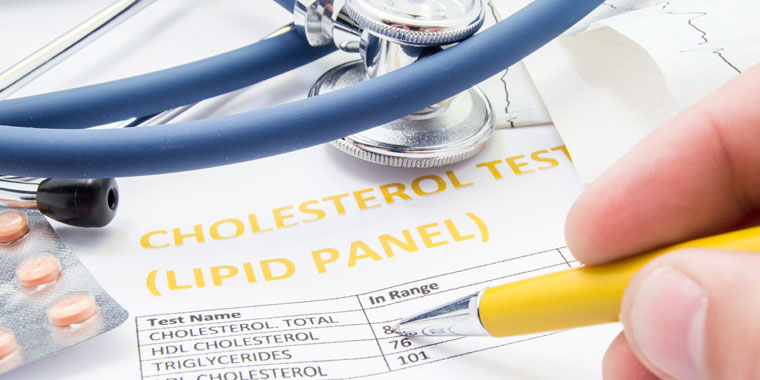- Cardiology And Vascular Health
- Heart And Vascular Disease Prevention
- Heart Disease Risk Factors
- Understanding Heart Disease
Study Confirms Statins Help Protect Heart Health

Answer a few questions and we'll provide you with a list of primary care providers that best fit your needs.
Doctors have long known that statin medications, like Lipitor, Crestor, and generic alternatives, effectively lower LDL. That is, the “bad” cholesterol, which contributes to plaque forming in and narrowing coronary arteries – and raising your risk of heart attack and stroke.
But a recent study, published in the Journal of the American College of Cardiology, confirms just how effective statins are, cardiologist Jacob Gibson, DO, told Premier Health Now.
“I think this study helps us with more concrete data to support why we’ve strongly recommended statins,” he says.
Many patients resist taking statins because of concerns they might cause side effects, like leg cramps. “People can have side effects from medications, but patients often say they don’t want to try statins,” Dr. Gibson says. “Sometimes they’re making this decision on side effects that family members or friends have had before they even try the medication.”
They often opt instead to take dietary supplements that are touted for promoting heart health, he adds.
But the study, at the Cleveland Clinic, found that rosuvastatin (Crestor) lowered LDL cholesterol by almost 38 percent, far better than a placebo and any of the six supplements studied in the trial – fish oil, cinnamon, garlic, turmeric, plant sterols, or red yeast rice.
“Some of these supplements actually lower triglyceride levels and raise HDL (“good” cholesterol) levels,” Dr. Gibson says. But none of the dietary supplements in the study demonstrated any significant decrease in LDL cholesterol compared with a placebo.
When patients are hesitant to try a statin, he explains, “I just try to have an honest conversation with them, lay out the benefits of statins, and they can make their own informed decision.”
He adds that if you experience a side effect after starting a statin, you can talk with your health care provider about trying another type of statin.
When Statins Are Prescribed
Health care providers prescribe statins based on a patient’s risk for cardiovascular disease. Factors that go into determining this risk are your LDL level, measured by a blood lipid test, and whether you’ve had a known heart attack, stroke, or narrowing of your coronary arteries.
Or if you haven’t had a known “cardiac event,” Dr. Gibson adds, your health care provider may prescribe a statin if you have a high level of LDL cholesterol and risk factors such as a family history of heart disease, or you smoke, have diabetes, and have high blood pressure. “It’s decided on a case-by-case basis.”
Though some dietary supplements may lower triglyceride and raise HDL levels, he says, “I can’t think of any instance when I would recommend a supplement over a statin. But when a patient is completely statin intolerant (is unable to take a statin due to side effects) that’s a whole different story, when we would look at other options.”
Answer a few questions and we'll provide you with a list of primary care providers that best fit your needs.
Sources: Jacob Gibson, DO, Premier Cardiovascular Institute; NPR





